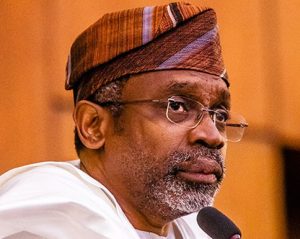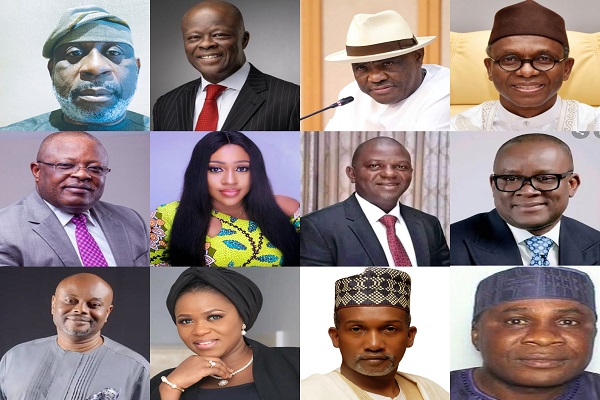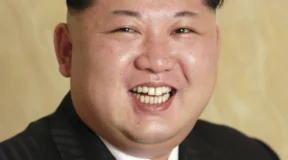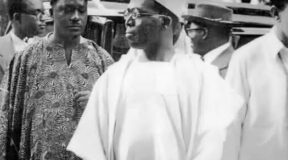Why Tinubu Did Not Assign Portfolios To Ministerial Nominees
OpenLife Nigeria reports that the absence of portfolios assigned to the ministerial nominees submitted by Bola Ahmed Tinubu to the Senate for screening during the week generated hot debates and controversies.
Most public affairs analysts frowned at the list the Presidency submitted to the Senate for screening on the grounds of absence of portfolios assigned to each nominee.
They pointed out that the screening would be difficult for Senators who would not be able to ask the requisite questions on the basis of the knowledge and experience of each nominee in relationship of the Ministry the nominee would manage as a Minister.
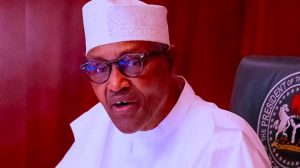
Clarifying the controversy Saturday morning on Arise TV, Senator Ita Enang, 61, and former Senior Special Assistant, SSA, to former President Muhammadu Buhari on National Assembly Matters (Senate) from 27 August 2015 to 29 May 2019, said there was nothing wrong in sending a list of nominees to the Senate without portfolios.
He stated that it is normal and indeed, that has been the tradition. Senator Ita Enang emphasized that it is also not against the constitution.

According to Enang who was called to the Nigerian Bar in 1985 at the Nigerian Law School, Lagos after graduating from the Law Faculty, University of Calabar in 1984, “It is not the practice and the constitution does not say so,” he explained.
Further , Enang, who represented Itu and Ibiono Ibom Federal Constituency of Akwa Ibom State in the House of Representatives from 1999 to 201 and elected Senator for the Akwa Ibom North East Senatorial District (Uyo) from 2011 to 2015, clarified that the wisdom behind not attaching portfolios to ministerial nominees arises from the likelihood of cabinet reshuffle which is an integral part of presidential administration.
He noted that ministers are nominated by the President for ministerial positions and that any nominated ministerial must possess the basic academic knowledge to function in any ministry and produce excellent results.
He argued that the Senate could screen and assess a particular nominee on the basis of his knowledge in education and the person would be assigned the education portfolio.

However, should the need arise for the President to reshuffle the cabinet and the education minister needs to manage Agriculture ministry , will the President go back to the Senate for re screening? He asked rhetorically.
Also, Senator Ita Enang who attended the Presbyterian Teachers Training College, Ididep, Akwa Ibom State between 1974 and 1979 asked “Assuming the Senate members are on recess at the time the need for rescreening comes up? What would happen? Do you then go back to the Senate or the President will have to be waiting? Nominees are screened and they can be assigned to any Ministry,” he stated.
The ministerial list was submitted to the Senate by the president’s Chief of Staff, Femi Gbajabiamila, at about 1:19 p.m.
The submission of ministerial nominees was in line with the constitutional provision stipulating that the president has from the date he is sworn in, a 60-day window to appoint ministers.
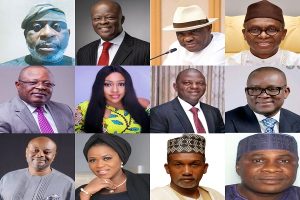
According to the ministerial list read by the senate president, the nominees are:
●Abubakar Momoh – Edo State
●Ahmad Dangiwa – Katsina
●Hanatu Musawa -Kastina
●Uche Nnaji -Enugu
●Betta Edu -Cross River
●Doris Uzoka -Imo
●David Umahi -Ebonyi
●Nyesom Wike – Rivers
●Mohamed Badaru -Jigawa
●Nasir El-Rufai -Kaduna
●Ekperikpe Ekpo – Akwa Ibom
●Nkiru Onyejiocha – Abia
●Olubunmi Tunji-Ojo – Ondo
●Stella Okotete – Delta
●Uju Ohaneye -Anambra
●Bello Mohammed Goronyo – Sokoto
●Dele Alake -Ekiti
●Lateef Fagbemi -Kwara
●Mohammed Idris – Niger
●Olawale Edun -Ogun
●Adebayo Adelabu – Oyo
●Imaan Sulaiman-Ibrahim -Nasarawa
●Ali Pate -Bauchi
●Joseph Utsev -Benue
●Abubakar Kyari -Borno
●John Enoh – Cross River
●Sani Abubakar Danladi -Taraba
The Senate President however referred the president’s request to the committee of a whole for consideration.
